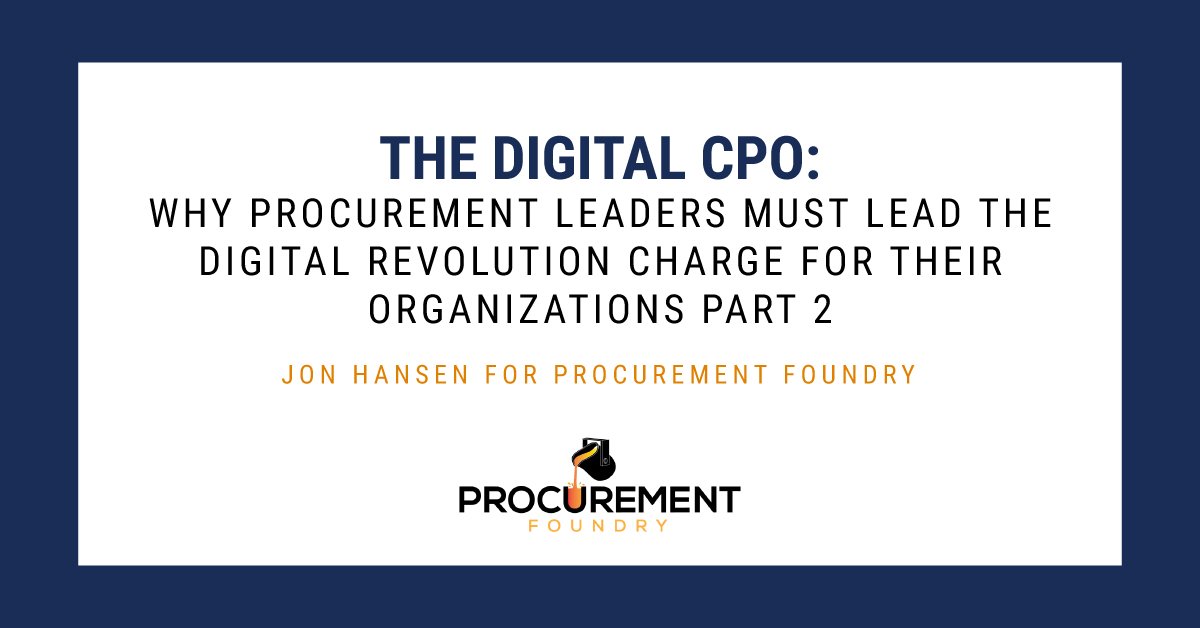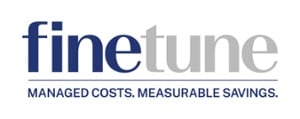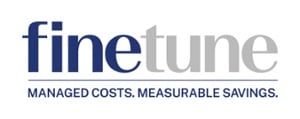Maximizing Savings Opportunities and Procurement's Strategic Value for CPOs
Saving money is not always about pinching pennies: advanced and data-driven insights enable you to identify real cost-saving opportunities, negotiate...
2 min read
![]() Jon Hansen
:
5/19/21 2:00 AM
Jon Hansen
:
5/19/21 2:00 AM

Becoming a digital champion is not as easy as flipping a switch; it requires human intervention.
CPOs will require a “high level of technical expertise and adaptability” to “achieve strategic corporate objectives.” In short, CPOs must understand what technology can do to properly position their teams to leverage it effectively, e.g., know where the tech ends and humans begin.
Again, while gaining the required technical prowess will require some effort, the more significant challenge is on the equation’s human side, specifically soft skills development.
Even before the digital revolution, developing the necessary skills to transform procurement from a functional or transactional role to strategic effectiveness (and importance) has been challenging.
Part of the reason is that procurement or purchasing was a one-dimensional profession driven mainly by getting the most bang for the buck mindset in which the lowest cost was a measurement of success. As a result, and as demonstrated by the continuing decline in training budgets, it was inevitable that talent development efforts would stagnate, leaving the majority of professionals’ jobs vulnerable to automation. As a result, the emergence of Robotic Process Automation (RPA) and Artificial Intelligence (AI) isn’t the “real” threat to the everyday run-of-the-mill buyer. What has hastened their imminent demise is a persistent and longstanding view of procurement’s role within the enterprise in which the emphasis is on savings.
Therefore, the most immediate responsibility and point of intervention for CPOs in leading the digital charge is to challenge these outdated perceptions and champion the transformation of mindsets regarding the big picture value of procurement in the data-driven, modern era. We are saying that leaders must focus on the humanization of procurement by developing the necessary soft skills to become strategic.
“Uber is a $3.5 billion lesson in building for how the world should work instead of optimizing for how the world does work.” – Aaron Levie’s Tweet about Uber
What did the CEO of Box, Aaron Levie mean with his famous tweet about “building for how the world should work versus optimizing for how the world does work?”
The generally accepted interpretation is that technology will automate and streamline the manual processes that confine humans to the mundane and repetitive tasks that limit our ability to focus on more important responsibilities. In other words, technology will free us to become more strategic by giving us the time to concentrate our energies on critical areas of an increasingly complex, globalized procurement practice.
One area that seems to require our immediate attention is strategic sourcing.
According to the Oxford College of Procurement & Supply, an organization’s ability to “keep profitability and efficiency at its peak” is to “apply a systematic approach to their strategic sourcing.” To do this effectively requires a sound approach to supplier relationship management.
Organizations that have strong relational skills realize the following benefits:
Once again, technology has a part to play in facilitating the above strategic areas of the modern procurement practice. However, automation alone cannot provide the necessary emotions and experience to build these critical relationships, and we cannot think of anything more uniquely human than the ability to establish and build meaningful relationships; can you?

Saving money is not always about pinching pennies: advanced and data-driven insights enable you to identify real cost-saving opportunities, negotiate...

The topic of our recent roundtable discussion with a dozen Procurement Foundry community members—exploring potential flaws in procurement incentive...

Every 30 days or so, I get the same alert on my phone—“Your electricity bill is available for viewing.” I take a quick look, make sure nothing seems...